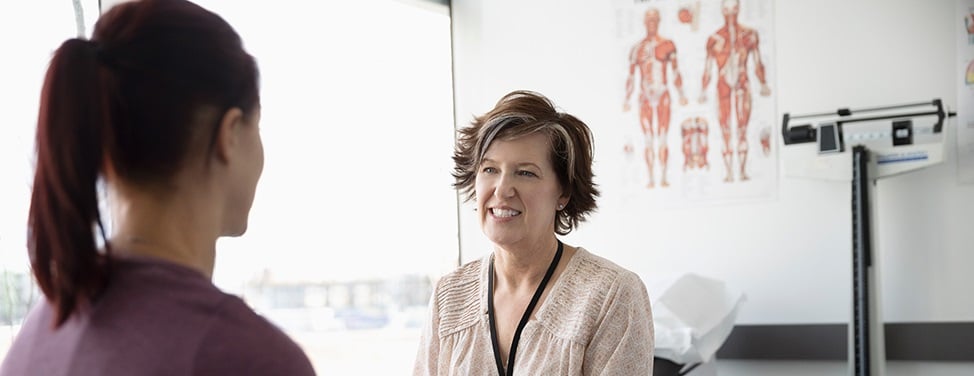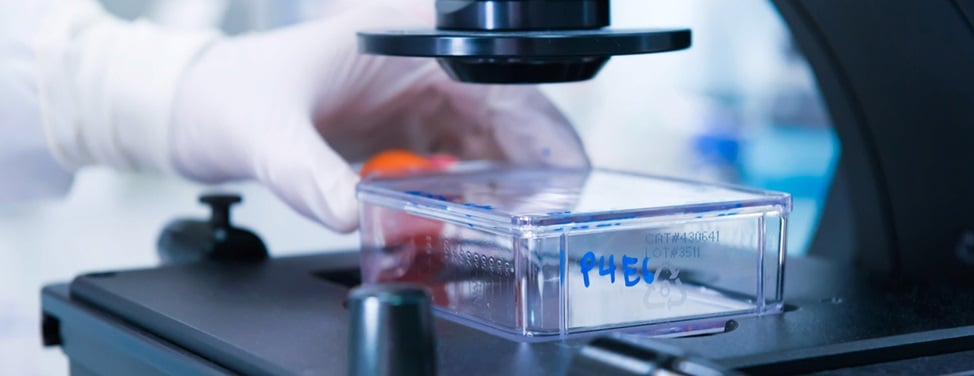
Pancreatic Cancer Symptom Management
Pancreatic cancer is often accompanied by one or more unpleasant symptoms. One of the goals of cancer therapies is to resolve or lessen the severity of these symptoms. Unfortunately, cancer treatments themselves may also cause symptoms.
Cancer patients often experience a range of symptoms, varying in severity. These include pain, fatigue, poor appetite, nausea and vomiting. It is important to discuss any symptoms with your doctor or nurse so management strategies can be discussed, and if needed, medications prescribed to control the severity of symptoms.
Pain
Pancreatic cancer can often cause abdominal and back pain. The pancreas lies within an area of the abdomen crisscrossed with nerves and blood vessels. You may experience pain when the cancer presses upon these nerves or other organs.
There are several methods available to treat and manage pain. These include pain medications (opioid and non-opioid), radiation, surgery and forms of nerve block, including celiac plexus block (CPB) or celiac plexus neurolysis (CPN). Some patients choose to supplement these methods with alternative or complementary therapies such as acupuncture, biofeedback, guided imagery and relaxation techniques.
Celiac plexus block (CPB) and celiac plexus neurolysis (CPN)
These procedures block a group of nerves in the abdomen called the celiac plexus, which can deliver sensations of pain from the abdomen to the brain. CPN involves the injection of an agent, usually alcohol, to permanently destroy nerves. CPB involves the injection of medications such as corticosteroids and numbing medications. This approach usually only lasts a few months and is not intended to permanently destroy nerves.
There are different approaches for performing celiac plexus block or neurolysis. CPB and CPN can be performed percutaneously, using a needle that is inserted through the skin and guided into position using imaging techniques such as computed tomography (CT) or endoscopic ultrasound (EUS). Or, a needle can be advanced into the celiac plexus region using an endoscope with ultrasound guidance, and either alcohol or numbing agents with corticosteroids can be injected.
Radio frequency ablation (RFA)
RFA is one of the newest techniques being used for pain control. During RFA, radiofrequency waves are delivered down a needle to generate just enough heat to destroy the nerves. It is not yet known which is the best way to perform a nerve block.
Your doctor will discuss whether this is an appropriate option for you, and will refer you to one of our pain specialists in this area. It is important to note that these procedures do not provide relief for everyone, but most patients will have a reduction in their pain.
Abdominal Symptoms and Nutrition
For a variety of reasons pancreas cancer can lead to unintentional weight loss. Sometimes this is due to stomach symptoms such as fullness, gas, belching, diarrhea, and commonly, constipation. Patients often describe a loss of appetite, food aversions, nausea and vomiting. These stomach and intestinal symptoms can be caused by the cancer itself or by the treatments prescribed to treat the cancer.
The best approach for finding effective ways to manage these symptoms is to discuss them with your doctor or nurses. There are many methods and resources available to help improve these symptoms.
Pancreatic Enzymes
Pancreatic enzymes are used to improve digestion of foods and prevent symptoms such as frequent, fatty bowel movements. These can occur in patients with a blockage between the pancreas and the intestine, or who have had surgery to remove all or part of the pancreas. Pancreatic enzymes are given to replace the natural substances normally made by the pancreas. These enzymes break down proteins, fats and starches from food into smaller substances to help absorption by the intestine. This allows the body to use these substances for energy.
Some patients may not need any pancreatic enzymes, while others may need a large amount to relieve their symptoms. The enzymes are taken by mouth, usually with food and water, several times a day — often with every meal or snack. The number of times per day that you take pancreatic enzymes depends on your condition and on how well you respond to treatment. Your doctor will prescribe the number of pills and how often to take them. Most likely, you will start on a low dose and gradually increase it depending on your response to treatment and diet.
Pancreatic enzymes may control symptoms but cannot cure the condition. You should continue to take pancreatic enzymes even if you feel well.
Fatigue
Fatigue is an extremely common symptom of cancer and cancer treatments. Feelings of fatigue can range from tiredness to exhaustion, can vary in frequency and often have multiple causes. It is important to tell your health care providers about your fatigue. There are many resources available to help you cope and conserve your energy.
For more information, please see our patient education articles, Delegation to Help With Fatigue and Tips for Conserving Energy.
Coping and Depression
Everyone who is diagnosed with cancer will react differently and will experience varying levels of stress and emotional upset throughout their cancer care. These symptoms and fears usually lessen as a person adjusts to the diagnosis.
Not all persons with cancer experience depression. The cause of depression is unknown. Risk factors may or may not be cancer-related, and some people with cancer may have a higher risk for developing depression.
The symptoms of major depression include:
- A depressed mood on most days
- Loss of interest or pleasure in most daily activities
- Changes in sleeping habits
- Nervousness
- Sluggishness
- Poor concentration
- Constant thoughts of death or suicide
At times, these symptoms are due to a medical condition.
Major depression may be treated with a combination of counseling and medications. Several therapies are helpful in the treatment of cancer-related depression. Most therapy programs are offered in either individual or group settings and include support groups, cancer education and classes on relaxation skills, coping, yoga and meditation. Some patients seek counseling from someone who understands life-threatening illnesses, such as a medical social worker, psychologist or chaplain. Patients without obvious symptoms of depression may also benefit from counseling.
UCSF Health medical specialists have reviewed this information. It is for educational purposes only and is not intended to replace the advice of your doctor or other health care provider. We encourage you to discuss any questions or concerns you may have with your provider.



















